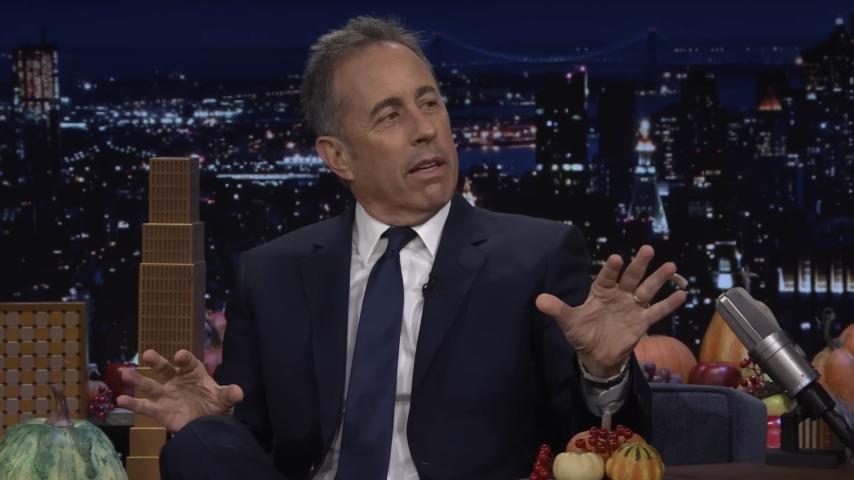“By saying ‘free Palestine’, you’re not admitting what you really think,” he continued. “So it’s actually—compared to the Ku Klux Klan, I’m actually thinking the Klan is actually a little better here because they can come right out and say, ‘We don’t like Blacks, we don’t like Jews.’ Okay that’s honest.”
Comparing all utterances of “free Palestine” (often, if not most frequently, stated in non-violent, anti-genocidal protest) to one of the United States’ most notorious hate groups is of course extreme. Even taken as a comparison on rhetoric alone, “Free Palestine” and the pro-Palestine movement as a whole are not inherently antisemitic, as many around the world have argued, including prominent anti-Zionist Jewish figures. Unfortunately, Seinfeld has made his disinterest in such nuances clear. “I don’t care about Palestine,” he said plainly after being ambushed by an activist earlier this year.
Seinfeld had previously told GQ his decision to travel to Israel after October 7 stemmed from simply being Jewish, and growing up keenly aware of antisemitism. “Every Jewish person I know was surprised by how hostile the reaction was,” he said. However, he claimed, “I don’t preach about it. I have my personal feelings about it that I discuss privately. It’s not part of what I can do comedically, but my feelings are very strong.” While it may not be part of his comedic act, the remarks made at Duke lean as close to preaching as he’s yet come.
In a statement given to The Chronicle, a spokesperson for Duke said, “Tuesday’s talk was a Chabad at Duke student-led event that invited Omer Shem Tov to share the story of his spiritual journey during 505 days in captivity. Jerry Seinfeld introduced the speaker and requested his appearance not be announced beforehand, given Omer Shem Tov’s experiences were the focus of the event. Duke does not preview the remarks of speakers who are invited to campus, and the invitation of speakers to campus does not imply any endorsement of their remarks.”

 Keep scrolling for more great stories.
Keep scrolling for more great stories.
